Recently I went to the Camberwell market in Melbourne. It’s a fabulous place, full of old discarded bric-a-brac, furniture, records and clothing deemed to be of little value to the original owner. The same items can prove to be treasure for those who discover them. All it takes is a little imagination and know-how to put them to good use.
As I wandered down the aisles, rummaging through trestle tables and peering into car boots, it struck me that coaching in many ways is like going to a jumble sale. A good coach has the knack of helping people to spot what’s needed in a situation. Sometimes that involves reclaiming talents, traits and characteristics we abandoned years ago.
As a child, developing a sense of who you are differentiates you from the people and environment around you. It’s how you know you are ‘you’ and I am ‘me’.
coaching in many ways is like going to a jumble sale
Yet as surely as we form an identity that embraces certain characteristics, qualities, values and beliefs, there will be things we don’t identify with – things outside our sphere of experience or interest. We come to think of these things as ‘not me’.1
Our identity is shaped by our life experience. In the course of our early development some traits and behaviours are rewarded more than others. Our family, ethnic and social cultures have a way of filtering our understanding of the world. They reinforce certain ideas and beliefs, while frowning on others. As a result we tend to focus on and master specific skills. We learn to act in certain ways and avoid other behaviours like the plague.
The process continues as we enter our chosen professions and are influenced by the expectations of our bosses and the cultural norms of the organisations we join. We can carry these influences from one job to the next, forgetting to re-examine the validity or usefulness of these internalised expectations.
In the process, we marginalise and fail to cultivate important capabilities.
Have you ever noticed that you feel nervous about displaying certain characteristics or taking on specific challenges at work?
In my practice as a coach I’ve noticed that managers who value getting along with others, can be reluctant to provide corrective feedback. Though situations may escalate they put off difficult conversations. If their identity as a peacekeeper has the upper hand, they might avoid assignments that require them to assert themselves. Often a member of their team becomes a de-facto leader challenging their authority, becoming excessively demanding of others or forming coalitions with the manager’s own manager, in an effort to fill the void.
Others who have a strong task and outcome focus may find they can’t manage situations that require diplomacy.
I personally find I get impatient with indecision, even though I struggle with tough decisions myself. I don’t find ambivalence in myself or others easy, I prefer to know where I stand.
Leaning on our strengths, we can avoid situations that challenge us. We tend to gravitate to situations that validate and reinforce our identity. When our identity becomes too fixed we can struggle to adapt to, or even notice the unique demands of new roles.
Our identity casts a shadow in which certain ways of behaving become hidden or temporarily unavailable to us.2 While under-developed, these capacities are rarely lost or beyond our reach. That’s where a good supervisor, mentor or coach comes in. They help us to rediscover and develop our latent and forgotten potential. As I discussed in Working with our Edges and No-go Zones an important coaching contribution lies in helping individuals and teams to explore beyond the limits of what is usually thought of as ‘me’. Once coach and client are in the territory of ‘not-me’, or what might be described as ‘Not how I usually approach these things’ new possibilities are discovered.
At the edge, or the boundary between the territories of ‘me and ‘not-me’, the coach and client discover subtle influences that shape choices and behaviour. Growth occurs as we learn to cross the unmarked border between what is known and what is less well known.
Like bargain hunters at a market we can try on different attitudes and ways of being, in search of a better fit. We can ask ourselves what’s suited to a given situation or how we need to engage a specific individual.
Periodically throughout your career you might find yourself sorting like a rag-picker through the beliefs and potential you regarded as unimportant in your life, to reclaim the latent potential hidden there. I hope you discover real treasures.
Here are a few questions that might help you in your search:
• How do you think of yourself? How do you want others to see you?
• In what ways does your identity influence your choices and the actions you take?
• How does it limit you? What are the consequences?
• How can you expand your sense of who you are and what you’re capable of?
I’d love to hear your strategies or stories of stepping beyond your usual identity.
If you have any questions please post them or drop me an email and I’ll endeavour to respond.
1Arnold Mindell, River’s Way: The Process Science of the Dreambody. Arkana, London, 1989.
2Carl Jung, The Undiscovered Self. New American Library, USA, Printing, 2006.
